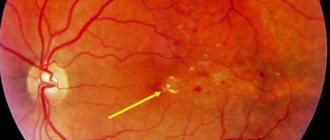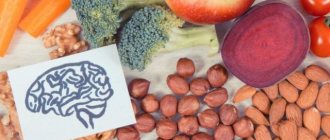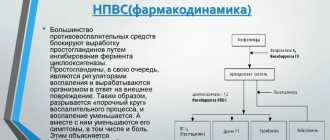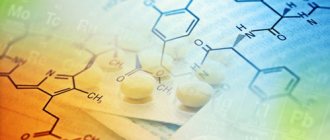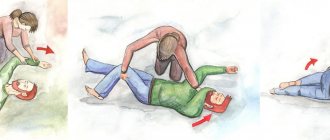The performance of the brain depends on its blood supply. The organ receives much-needed oxygen from the blood. If it is lacking, a person suffers from cognitive impairment. Under conditions of extreme stress that require increased mental activity, natural resources are not enough, and the brain requires replenishment. If there are problems with blood circulation, this need increases many times over.
In such a situation, drugs to increase brain activity help. We'll look at how they work, who should take them, and how to choose the right ones.
Nootropics: what are they?
Nootropics are a group of drugs for improving higher brain functions. It combines:
- medications to normalize cerebral blood supply;
- brain stimulants that enhance mental activity;
- means to compensate for neurological deficits;
- vitamins that increase the resistance of the central nervous system to adverse factors.
They are mistakenly credited with a non-existent effect - the development of intellectual abilities in children and adults. It's a delusion. Taking the pill doesn't make anyone smarter. But if higher mental functions begin to fade, they can be returned to their previous level. To do this, you need to eliminate the cause - overwork, hypoxia or other brain disorders. This is the purpose of nootropic drugs.
The best vitamin complexes
Next, we will briefly talk about three categories of vitamin complexes:
- Vitamins for adults
- Vitamins for students
- Vitamins for children
Take this information into account, but before taking this or that complex, be sure to consult with a specialist.
Vitamins for adults
These complexes, about which there are mostly positive reviews, will be useful for both adults and adolescents leading a normal lifestyle. They can be used as a supplement to the main diet.
Complexes:
- Fish fat. It has long been considered one of the simplest but most effective means of stimulating brain activity and mental development, preventing blockage of blood vessels, normalizing mental state and improving memory even in old age.
- Guarana. Dried mass obtained from the seeds of a vine of the genus Paullinia, growing in the regions of Paraguay and Brazil. Used as a vitamin complex that prevents the spread of free radicals that disrupt brain function. It also ensures the production of red blood cells and promotes their flow to brain cells, increases perseverance and relieves fatigue.
- Griffonia. Extract from a medicinal African bush. An excellent tool for improving the functioning of the central nervous system, normalizing the sleep cycle and mental state. Allows you to get rid of depression and fatigue.
- "Gerimaks Energy". Its peculiarity is that it contains ginseng extract - the “root of life”. It not only stimulates long-term memory, but also allows the body to effectively cope with heavy mental stress under conditions of stress and lack of sleep.
- "Encephabol." Helps restore metabolic processes and enhance glucose uptake for better brain nutrition. Can be used by people suffering from pathological and age-related changes, such as absent-mindedness and sclerosis.
- "Supradin." This multivitamin is universal. By consuming it, you can replenish the daily requirement of all components necessary for the functioning of the brain and its protection.
- “He will direct.” It is a useful herbal complex that accelerates the transmission of impulses in nerve cells.
- "Phenibut." A special remedy that reduces the likelihood of cognitive disorders. Prevents the occurrence of fear, nervousness and stress, has a calming effect on the nervous system, and promotes con. A drug to improve blood circulation and strengthen the walls of blood vessels in brain tissue. Thanks to it, the brain is saturated with oxygen, and thinking becomes fast and clear. Also used to prevent headaches.
- "Piracetam." A drug that increases the resistance of the nervous system to oxygen starvation and the effects of toxins. It has a complex effect on the brain and improves learning ability.
You can find and buy these brain vitamins at almost any pharmacy. Before purchasing, it is advisable to read the pharmacological properties and reviews and consult a doctor.
Vitamins for students
Vitamins in this category will be useful for schoolchildren and students. But they can also be taken by adults whose activities are related to learning. Considering that the diet of students (especially school and university students) cannot be called ideal, their body simply does not receive the vitamins it needs in the required proportions. That is why their deficiency must be compensated by balanced complexes that will activate memory, stimulate brain activity and strengthen nerve cells.
Complexes:
- "Phosphatide complex". Allows you to speed up metabolic processes, increases learning ability, improves concentration and memory.
- "Phenotropil". It is usually used by students when preparing to take exams and during exams. Initially, the drug was created to treat Alzheimer's disease, but later its properties to stimulate short-term memory and improve concentration made it a popular vitamin complex for schoolchildren and students. Available only by prescription.
- "Glycine". A completely safe and affordable tool that allows you to effectively cope with the tension and stress that accompany tests, exams, sessions and other important events.
- "Orthomol Mental". A product designed for people leading an active lifestyle, engaged in active mental activity, who do not have time for proper sleep, who travel and often go on business trips. The use of this complex allows you to increase your performance, relieve fatigue, increase stress resistance, and help you adapt to new activities. It is also important that it improves vision.
- "Brain Booster." This preparation contains extracts of various vitamins, minerals and medicinal herbs. They intensively nourish cells, normalize blood circulation in all - even the smallest vessels of the brain, help impulses be transmitted more quickly through nerve cells, help improve the assimilation of information and adaptation to increased loads during the learning process.
In the use of the above vitamins, despite the absence of special contraindications, there must be intervals so that the body does not get used to them, and the brain is able to work actively without outside help. Such intervals are best done during holidays, vacations and other periods when there is no increased load on the brain.
Vitamins for children
The child's body requires the closest attention, because... is in a state of constant development and growth. Vitamin complexes for children help form a healthy nervous system. They are also suitable for intense mental stress, because... activate memory, improve brain function and the ability to concentrate.
Complexes:
- "Jungle". This complex includes all the essential vitamins necessary for the development of the mind and active brain activity, as well as for the development of nerve cells.
- "Pikovit." It is considered a universal complex, because it includes all B vitamins, vitamins A, C and D, folic acid and calcium. You can find syrup for babies from 1 year old and for children from 4 and 7 years old.
- "Complivit." A remedy that strengthens memory and normalizes the mental and physical state during mental stress.
- "Multitabs". Another universal drug containing all the vitamins and microelements necessary for a child’s brain. There are seven varieties of the complex, designed for children from 0 to 17 years old.
- "Vitrum Junior". An excellent product for developing children's brains. Suitable for children from 7 to 14 years old (for teenagers from 14 to 17 years old there is Vitrum Teenager). Includes 13 vitamins and 10 microelements. Promotes mental development and adaptation to neuropsychic, emotional and physical stress.
To make sure that all the complexes that we mentioned contain the required amount of vitamins, minerals and microelements that are beneficial for brain development, you can read their composition and reviews on the Internet, and also consult with a specialist. Please note that this article is for advisory purposes only, so in any case, before purchasing the product you are interested in, you need to make sure that it is suitable for you or your child.
Finally, we offer you another video in which Natalya Taran, an employee of the Research Institute of Nutrition of the Russian Academy of Medical Sciences, talks about what vitamins are best to give to children and how to properly structure baby food in general.
Despite the fact that food is usually perceived as a building material and source of energy for the body, it has been confirmed more than once that it can prevent the development of neurodegenerative diseases and cognitive problems. With proper nutrition and taking vitamin complexes, the human brain receives everything it needs to function normally even in the most difficult conditions for it. So eat plenty of vitamins and be healthy!
We also recommend reading:
- Storytelling
- Nootropics: Upgrading the Brain with Drugs
- 10 Unusual Ways to Boost Your Cognitive Abilities
- 7 effective “cures” for chronic fatigue
- Vitamin D3: the role of cholecalciferol for the human body
- The main mistakes that beginners make in sports
- Brain Foods
- Food for the mind: foods that improve concentration and brain function
- How to Keep Your Mind Clear: 15 Great Ways
- Poor memory: what to do?
- Ways to Improve Cognitive Learning
Key words:1Healthy lifestyle
The principle of action of drugs to improve memory
To increase the activity of the central nervous system, the following therapeutic effects of these drugs are also important:
- acceleration of glucose utilization;
- increased protein synthesis;
- improvement of nucleic acid metabolism;
- impact on the monoaminergic system (activation of the production of adrenaline, dopamine and serotonin);
- stimulating the cholinergic system to avoid cognitive impairment (in particular, decreased declarative memory).
The purpose of taking nootropics is to improve cerebral circulation and normalize metabolic processes in nerve cells. At the same time, the rate of formation of neural connections increases and their number increases. This leads to increased brain activity. That is, against the background of treating disorders, nootropics act as stimulants for the functioning of the organ itself.
Treatment regimens for retinal angiopathy
Drug therapy in the case of angiopathy and its vascular complications should be comprehensive. If necessary, treatment can be continued in courses. Before prescribing it, an ophthalmologist develops a specific, most effective regimen for using drugs. As a rule, these are the following appointments:
- Drug therapy aimed at activating blood circulation in the vessels of the eyes is necessary. This is a course treatment with Emoxipin, Vazonit, Mildronate, Arbiflex, Solcoseryl, Trenatal. They help activate local microcirculation processes. Another property of these drugs is improving the plasticity of red blood cells. This allows them to move faster through the small vessels of the eyes.
- Pentoxifylline and Curantil help prevent possible thrombus formation. Xanthiol nicotinate and nicotinic acid improve blood rheology.
- To reduce vascular permeability, ginkgo biloba and calcium dobesilate are prescribed.
- Actovegin injections are designed to provide better nutrition to the eye tissues. To improve metabolic processes in eye tissues, ATP and cocarboxylase are used.
- It is mandatory to take vitamin complexes to maintain eye health - Lutein-intensive, Anthocyan Forte. It is important to take ascorbic acid, which accelerates microcirculation processes in blood vessels and maintains visual acuity.
- For diabetic retinopathy, it is necessary to adhere to a special diet that can neutralize diabetes mellitus and improve blood flow in the retinal vessels. It is worth remembering that prohibited foods include any food rich in fast carbohydrates (baked sweets, sweet soda, etc.). The same applies to excessively high-calorie foods. Limiting salt is also important, because it helps normalize metabolism and improve recovery processes.
- Vigorous physical exercise, included in the daily routine to give energy to the muscular system, also improves the condition of the eye vessels.
- When treating angiopathy caused by hypertension, it is mandatory to lower blood pressure levels through medications and specially designed dietary adjustments. To do this, you should contact a cardiologist and nutritionist.
- It would not be superfluous to prescribe physiotherapeutic procedures. In the case of angiopathy, magnetic therapy courses and acupuncture can show good results.
- Another physiotherapeutic method is “Sidorenko Glasses”. This device combines the effects of pneumomassage, infrasound, phonophoresis, and color therapy. The powerful effect on the retina of such a complex makes it possible to achieve good results in a short time.
- Treatment also helps with massage courses on the cervical spine.
What does increased brain activity give a person?
Nootropics are called cognitive enhancers. Taking such medications or vitamins enhances learning abilities due to the complex activation of the central nervous system:
- memory improvements;
- increasing concentration;
- enhancing perception;
- ensuring clarity of consciousness;
- preventing mental exhaustion;
- reducing excitability;
- overcoming asthenia (neuropsychic weakness).
Depending on the active substance, additional effects may be observed. Some have a sedative effect, others help get out of depression. There are medications that help regulate sleep and wakefulness.
Brain activity stimulants are often grouped together with neuroprotectors. They protect the organ from the severe consequences of circulatory disorders, prevent cell destruction, and help slow down dementia.
Indications for use
Nootropic drugs are prescribed when diagnosing disorders of brain activity. They may be associated with head injuries, circulatory problems, and intoxication. Most often, nootropics are prescribed for:
- oxygen starvation of brain tissue;
- cognitive disorders (memory deterioration, decreased ability to concentrate);
- vegetative-vascular dystonia;
- encephalopathy;
- central nervous system intoxication (including alcohol);
- neuroinfections;
- depression;
- asthenia;
- neuroses.
In these cases we are talking about medications. To increase mental performance, you can get by with a good vitamin complex.
For children and adolescents, nootropics help with attention deficit disorder and delayed intellectual development. For older people, they are a weapon against dementia (including Alzheimer's disease).
Vitamins for the heart and blood vessels
A strong heart and strong blood vessels are the key to a long and fulfilling life. Young people pay little attention to the state of their cardiovascular system and only grab their heads when illness strikes. The human heart copes with incredible stress every day. Due to the frantic pace of life, stress, and poor nutrition, the circulatory system is weakened and filled with waste and toxic substances. Vitamins for the heart and blood vessels are needed not only by the elderly, but also by young people. Taking vitamin supplements is a sure way to maintain health and prolong life.
Causes of heart pathologies
According to statistics, heart disease is one of the leaders among human pathologies in terms of disability and mortality. Why are modern people of all ages prone to cardiovascular diseases? The main culprit is an incorrect lifestyle. Representatives of today's youth move little, eat poorly, are often nervous, worried, exposed to stress, chasing success, forgetting about rest. And lack of sleep and excessive stress are the main enemies of the heart. Cardiac pathologies occur as a result of exposure to the following factors:
- high blood pressure;
- obesity;
- sedentary lifestyle;
- bad habits;
- constant stress;
- genetic predisposition;
- lack of vitamins and microelements in the body.
Vitamins and biologically active substances necessary for the heart
In order for the heart to remain healthy, the body must receive optimal amounts of vitamins and microelements. Listed below are the vitamins most essential for the normal functioning of the heart muscle.
- Retinol or vitamin A. A fat-soluble substance that stimulates metabolism and prevents the development of atherosclerosis. Fish oil, milk, and carrots are rich in retinol. Pharmacies sell retinol acetate, a solution for oral administration.
- Ascorbic acid or vitamin C. A water-soluble substance that activates metabolism, destroys bad cholesterol, and strengthens the heart muscle. The vitamin is found in large quantities mainly in plant foods: rose hips, citrus fruits, currants, bell peppers. Ascorbic acid can be used in injections, tablets and dissolving pills.
- Tocopherol or vitamin E. Prevents the oxidation of fats and the formation of free radicals that destroy the tissue of the heart muscle and blood vessels. It is present in significant quantities in liver, nuts, and vegetable oil. The vitamin can be purchased at the pharmacy in capsule form or as a solution.
- Rutin or vitamin P. A water-soluble substance that strengthens the walls of blood vessels, used for pathological bleeding. Citrus fruits, apples, and rose hips are rich in vitamins. In pharmacies, rutin is sold in tablet form.
- Thiamine or vitamin B1. A water-soluble substance necessary for proper contraction of the heart muscle. Cereal porridges contain the most thiamine. To eliminate the deficiency of this vitamin in the body, injections are usually prescribed.
- Pyridoxine or vitamin B6. Destroys harmful cholesterol, normalizes the functioning of blood vessels in the nose, eyes, brain, and activates lipid metabolism. It is present in significant quantities in meat, fish, legumes, and milk. Typically used as pyridoxine hydrochloride injections.
- Vitamin F. Vitamin-like compounds are polyunsaturated fatty acids. Prevents the formation of cholesterol plaques in blood vessels. Fish oil, vegetable oils, fish and seafood are rich in fatty acids.
- Coenzyme Q10. An enzyme that is synthesized in the human liver with sufficient intake of plant and animal products. With a deficiency of the substance, the likelihood of myocardial infarction increases, and the body rapidly ages.
Heart-essential minerals
Certain minerals have a positive effect on the functioning of the circulatory system. Below is a list of the most important minerals for the heart.
- Calcium. Regulates the frequency of contractions of the heart muscle, strengthens the walls of arteries and veins. It is found in significant quantities in fish and dairy products.
- Potassium. Controls nerve impulses that cause the heart muscle to contract. It is present in high concentrations in nuts, dried fruits, potatoes, and cabbage.
- Magnesium. Improves metabolism in cardiac tissues, prevents the formation of blood clots. It is found in large quantities in meat, legumes, and fish.
- Phosphorus. Participates in the formation of cell membranes. Regulates muscle contractions and nerve signal transmission. It is present in significant quantities in bran bread, green beans, and dried fruits.
Vitamins beneficial for brain vessels
Due to poor blood circulation in the brain, strokes often occur. And after a stroke, a person experiences problems with memory, visual and speech function. For your brain to function properly, you need to take vitamins regularly. Below is a list of substances important for the blood vessels of the brain.
- Thiamine or vitamin B1. Improves memory, helps to absorb information faster. Vitamin deficiency causes insomnia, frequent fatigue, problems with coordination of movements, and depression. To replenish thiamine in the body, you should eat fish, meat, nuts, eggs, and oatmeal.
- Riboflavin or vitamin B2. Provides brain tissue with energy, helps cope with high intellectual and physical stress. If there is a lack of the substance, a person becomes drowsy and distracted, his appetite worsens and headaches occur. Meat and dairy products are rich in vitamins.
- Nicotinic acid or vitamin B3. Stimulates energy synthesis in the body, normalizes the functioning of blood vessels in the eyes, nose and brain. It is present in large quantities in liver, meat, legumes, fish, nuts, and eggs.
- Pantothenic acid or vitamin B5. Controls the transmission of nerve impulses and supports mental performance. With a deficiency of the substance, depression, insomnia, and chronic fatigue are noted. Milk, liver, and cabbage are rich in vitamins.
- Pyridoxine or vitamin B6. Restores nerves, strengthens brain vessels. With a lack of the substance, a person becomes hot-tempered and anxious, he experiences depression and sleep disturbances. The vitamin is present in significant concentrations in cereals, liver, legumes, and nuts.
- Folic acid or vitamin B9. Improves thinking ability. With vitamin deficiency, memory deteriorates, apathy and weakness are noted. The substance is rich in nuts, cereals, mushrooms, meat, and fresh plant products.
- Cyanocobalamin or vitamin B12. Regulates the change in phases of sleep and wakefulness, increases brain activity. With a lack of the substance, depression, tinnitus, decreased intellectual abilities, nervousness, visual and memory impairment are noted. The vitamin is present only in animal foods and some algae.
Strengthening the blood vessels of the extremities
The main problem of the blood vessels of the legs is varicose veins. This is an extremely unpleasant disease, in its advanced form manifested by swelling of the knees, legs and feet, inflammation and darkening of the skin of the lower extremities.
To strengthen the blood vessels of the arms and legs, it is necessary to take vitamin complexes supplemented with iron, zinc and calcium. Elimination of varicose veins is carried out through complex therapy. The doctor prescribes therapeutic exercises, physiotherapeutic and water procedures, and medications to the patient. A sick person should not stand or sit in one position for a long time, consume a lot of salt, coffee, black tea, and alcohol. To successfully get rid of the disease, you must adhere to a diet and monitor your body weight.
Strengthening eye blood vessels
If the eyes hurt and hurt, and blood streaks are noticeable on their surface, then we can talk about weakening of the eye vessels. The blood vessels of the eyes are weakened under the influence of the following factors:
- allergies;
- long periods of time at the computer;
- bright sun and harsh wind;
- insomnia;
- changes in blood pressure;
- intense physical activity.
To prevent blood vessels in the eyes from bursting, it is necessary to take B vitamins and ascorbic acid. For severe vascular pathologies of the eyes, it is recommended to administer rutin intramuscularly. Fresh fruits and vegetables, green or rosehip tea are beneficial.
Products to strengthen blood vessels and improve heart function
To keep your cardiovascular system healthy, you need to include the following foods in your diet.
- Olive oil. A high-quality first-press product is rich in unsaturated fats and antioxidants, which cleanse blood vessels of harmful accumulations. With regular consumption of olive oil, the concentration of bad cholesterol in the blood is greatly reduced.
- Dried apricots. Dried apricots contain large quantities of natural antioxidants that protect heart cells from toxins and breakdown products. Dried apricots contain potassium, which prevents the development of a heart attack.
- Fish. Rich in substances that strengthen the walls of blood vessels. Useful for arrhythmia.
- Nuts. They contain arginine, an amino acid that has a beneficial effect on the heart. Regular consumption of nuts significantly reduces the likelihood of a heart attack.
- Dark chocolate . A high-quality product contains flavonoids - pigments that dilate blood vessels, helping to eliminate hypertension. It should be noted that chocolate has no effect on people with low blood pressure.
- Grape. Contains significant amounts of antioxidants and heart vitamins. High-quality grape wines also contain antioxidants. However, you should not abuse alcoholic beverages, otherwise the harm will outweigh the benefits.
Who is recommended to take vitamins for blood vessels and heart?
Many people begin to take care of the circulatory system only when it becomes ill. By supporting and protecting the heart and blood vessels, you can not only cure dangerous pathologies, but also prevent their occurrence. Which groups of people need vitamins for the heart and blood vessels?
- Patients suffering from vascular diseases of the brain and limbs.
- Athletes.
- Children and teenagers.
- People over 50 years old.
- Patients who have undergone heart surgery.
- People doing heavy physical work.
- People working in hazardous workplaces.
People belonging to the categories listed above should definitely contact a cardiologist. The doctor will select the optimal complex of vitamins and minerals. The dosage of the drug and the duration of the therapeutic course are determined by the medical specialist, focusing on the age and well-being of the patient.
Be healthy!
Doctor-hygienist
Gapanovich Valentina,
Contraindications for use
Nootropics are considered one of the safest medications. There are no absolute contraindications to their use. Although doctors do not recommend using them unless any disorder of brain activity is diagnosed. They are not prescribed to pregnant women and infants.
Some drugs have side effects. Their undesirable appearance may become a relative contraindication for use. These include:
- increased blood pressure;
- dizziness;
- sleep disorder (more often - insomnia, less often - drowsiness during the day);
- motor restlessness;
- nausea;
- skin itching;
- irritation of mucous membranes.
So, if a person has psychomotor agitation, medication for brain activity can only worsen the situation. Not everyone experiences drowsiness. Before you get behind the wheel, you should monitor your condition after taking medications.
Clinical manifestations of deficiency of vitamins B1, B6, B12. Pyridoxine - dependent epilepsy.
B vitamins are traditionally used in the treatment of various neurological diseases. Lack of vitamins B1 (thiamine), B6 (pyridoxine) and B12 (cobalamin) leads to damage to peripheral nerves, which explains their use in diseases of the peripheral nervous system.
It is known that B vitamins are neurotropic and significantly affect processes in the nervous system (metabolism, metabolism of mediators and transmission of excitation).
Deficiency of B vitamins occurs in a number of cases, the main ones include:
- Dietary restrictions, vegetarianism.
- Action of various toxic substances (ethanol).
- Use of medications (for example, isoniazid, an anti-tuberculosis drug).
- After surgical interventions on the gastrointestinal tract, for intestinal diseases (malabsorption syndrome).
- Some genetic diseases accompanied by impaired metabolism of B vitamins (pyridoxine - associated epilepsy).
But these vitamins can also be prescribed in the absence of their deficiency due to their active participation in biochemical processes, for example, in diabetic polyneuropathy or the treatment of pain syndromes.
Group B deficiency is detected quite often in the general population, especially in developing countries, but also occurs in developed countries. For example, in the USA and England it occurs in 6% of the population, mainly in older age groups. When a group of 581 patients was prescribed vitamin B12, the condition improved in 87% of cases due to obvious cobalamin deficiency and in 43% with possible cobalamin deficiency.
It is known that vitamin B1, localized in the membranes of nerve cells, has a significant effect on the regeneration processes of damaged nerve fibers and is involved in ensuring energy processes in nerve cells, as well as the normal function of axoplasmic flow.
B6 supports the synthesis of transport proteins in axial cylinders and has an antioxidant effect.
B12 affects membrane lipids and is involved in biochemical processes that ensure normal myelin synthesis. Therefore, vitamins of this group are often called neurotropic. In combination, B vitamins have a positive effect on the vascular wall, inhibiting platelet aggregation, realizing their effect indirectly through the activation of prostaglandin E receptors.
Deficiency of each of the B vitamins leads to the formation of polyneuropathy. With a long-term lack of thiamine in food, distal sensory-motor polyneuropathy is formed, reminiscent of alcoholic and diabetic ones. Lack of pyridoxine leads to the development of distal symmetrical, predominantly sensory polyneuropathy, manifested by a feeling of numbness and paresthesia. Cobalamin deficiency is manifested by pernicious anemia, subacute degeneration of the spinal cord with damage to the posterior cords, and less commonly, distal sensory peripheral polyneuropathy, with characteristic numbness and loss of tendon reflexes.
In a pregnant woman, a lack of vitamins B9 (folic acid) and B12 can lead to the development of pathology of the nervous system in the fetus, in particular, a defect in the formation of the neural tube. Subsequently, the fetus may develop pathologies of skeletal structures (underdevelopment of the limbs, cleft palate, spina bifida), spinal cord (myelomeningocele), changes in the central nervous system (underdevelopment of the brain, cysts, malformation, hydrocephalus) in newborns. Including supplements rich in folic acid and vitamin B12 in the pregnant diet reduces the risk of developing neural tube defects.
A rare hereditary autosomal recessive disease has also been described: pyridoxine-dependent epilepsy . It typically begins in the first days or months of a child’s life, and is characterized by a lack of response to the use of standard anticonvulsants. Prescription of therapeutic doses of pyridoxine 50 mg/day. or pyridoxal phosphate may stop attacks completely. Sometimes taking anticonvulsants has a positive, but short-lived effect.
There is a known clinical case of effective, but short-term use of phenobarbital in a one-month-old child. The administration of pyridoxine completely stopped the seizures, and its withdrawal led to their resumption, but repeated use completely stopped the seizures.
The effectiveness of pyridoxine has also been noted in other forms of epilepsy: in particular, there is a report of the development of partial seizures in an 81-year-old woman who took theophylline for 2 months. Its withdrawal improved the condition, but the seizures stopped precisely after intravenous administration of pyridoxine.
Also, in some cases, pyridoxine reduces the side effects of anticonvulsants. For example, levetiracetam can cause behavioral disturbances in patients with epilepsy, and the administration of pyridoxine normalizes their behavior within the first week of use.
Thiamine deficiency plays a major role in the development of alcoholic polyneuropathy. It begins in the distal lower extremities, then involves the proximal legs and distal arms. The cause of the formation of alcoholic polyneuropathy is both the direct toxic effect of ethanol and its metabolites (acetaldehyde), and poor nutrition of patients with alcoholism and malabsorption syndrome.
It should be noted that with a normal and varied diet, the intake of B vitamins into the body is quite sufficient to prevent any vitamin deficiency. The emergence of synthetic forms of vitamins makes it possible to take in one dose of the drug the same amount of vitamins that a person could get in food during the year. But in these doses, vitamins should be considered as new dosage forms. It is also worth paying attention to the fact that at such concentrations their mechanism of action often turns out to be different from the well-known physiological effect that is usually considered when analyzing the mechanisms of action of vitamins and when prescribing them as replacement therapy for vitamin deficiency states.
Literature:
1. “B vitamins in the treatment of neurological diseases” Breast Cancer No. 11 dated May 12, 2009. 2. “The use of B vitamins for back pain: new analgesics?” RMZh No. 0 dated January 25, 2008. 3. “B vitamins in the treatment of acute back pain: myth or reality?” Attending physician No. 4 of 2007.
Groups of tools to improve brain function
Piracetam was the world's first nootropic. It was developed back in 1963 as a replacement for psychostimulants, benefiting from the absence of side effects. This substance became the founder of the racetam group, which improves memory.
In the nootropics category you can also find:
- correctors of cerebral circulatory disorders;
- dimethylaminoethanol derivatives, which help absorb oxygen and improve thinking skills;
- derivatives of pyridoxine (vitamin B6), normalizing metabolism in neurons and stabilizing the functioning of the central nervous system;
- neuropeptides that promote the formation of long-term memory.
Neuroprotectors are sometimes identified with nootropics, but there is a difference between them. Neuroprotectors are drugs of mixed action. They have a wider range of effects.
Rating of the best drugs to improve brain function
Despite the large selection of nootropic drugs in pharmacies, among them there are firmly established leaders. First of all, this is the mentioned Piracetam. It is produced in the form of tablets, capsules and injections.
But there are many more good remedies with a similar effect. They differ in active ingredients and dominant effects. The top five, along with Piracetam, includes:
| Glycine | The amino acid of the same name helps to cope with the manifestations of vegetative-vascular dystonia and mental overload. |
| Cavinton | Cerebrovascular corrector vinpocetine, which restores blood circulation and neutralizes the effects of hypoxia. |
| Fenotropil | A psychostimulant that helps improve concentration, improve performance, and is a mild tranquilizer. |
| Semax | A neuropeptide that activates learning processes and helps adapt to a lack of oxygen. |
Vitamins to improve brain function
If no serious disturbances in brain function have been identified, you should not abuse medications. You can solve the problem of increasing concentration or learning ability with the help of vitamins:
- beta-carotene, which protects neurons from premature aging;
- B1, a neuroprotector that supports good memory and clarity of consciousness;
- B6, which supports concentration and prevents depression;
- B9, which is taken to prevent stroke;
- B12, a deficiency of which increases the risk of Alzheimer's disease;
- C, slowing down degenerative processes;
- K, which speeds up the processing of signals entering the brain.
There is no miracle pill that will solve all cognitive problems at once. But correctly identifying the cause of the violations allows you to choose the appropriate remedy for their correction.
Energizers 4 brain
There are many vitamins, but the most useful and important for our brain are the B vitamins. Their effect on human thinking and memory is the strongest. But in addition to supporting the functioning of cells, they also protect the brain from stress and overload and prolong youth. If there are few of them in the body, the consequences can be very dire, including serious disorders of the nervous system, decreased intelligence and memory.
The category of B vitamins includes vitamins B1, B2, B3, B5, B6, B9, B12. Let's take a closer look at them.
Vitamin B1
The second name is thiamine. In common parlance - “vitamin of the mind.” Its effect on memory and mental processes is most powerful, because... it is responsible for protecting the nervous system and helps supply the brain with glucose.
Thiamine deficiency causes:
- Memory loss
- Confusion of thoughts
- Muscle weakness
- Sleep disorders
- Depressed state
- Anxiety
- Tearfulness
- High irritability
- Impairments in coordination
- Numbness of the limbs
With a serious lack of this vitamin, a person may experience disturbances in the functioning of the cardiovascular system and gastrointestinal tract (for example, nausea, constipation, stool upset), as well as the development of paresis of the limbs, paralysis and polyneuritis.
If you eat well, you don’t have to worry about a lack of vitamin B1, but if your diet is poor or you notice the above symptoms, be sure to include spinach, potatoes, beans, radishes, carrots, nuts, peas, bran, buckwheat, and oatmeal in your diet.
Keep in mind that vitamin B1 is very well absorbed, but is also easily destroyed, especially if you drink a lot of black tea and sugar, smoke and abuse alcohol.
Vitamin B2
The second name is riboflavin. In common parlance – “vitamin of energy”. It promotes proper metabolism and acceleration of energy, activation of mental processes, synthesis of nerve cells; improves the functioning of neurotransmitters (these are special biologically active substances necessary for the transmission of nerve impulses in cells).
A lack of riboflavin causes:
- Fatigue
- Fatigue and weakness
- Poor appetite
- Drowsiness
- Weight loss
- Slowing down mental processes
- Headaches
With an acute lack of vitamin B2, problems with the adrenal glands, visual disturbances (lacrimation, photophobia), dermatitis of the skin of the face and chest, and cheilitis (cracks and sores in the corners of the mouth) may occur.
To prevent these health problems and provide the brain with riboflavin, you need to eat rose hips, cabbage, tomatoes, yeast, dairy products, eggs, kidneys, and liver.
Be sure to remember that foods containing vitamin B2 can be safely fried and otherwise subjected to heat treatment, but it is not recommended to keep them in the open sun, because this vitamin does not tolerate exposure to its rays and is quickly destroyed.
Vitamin B3
Other names: vitamin PP, niacin, nicotinamide, nicotinic acid. In common parlance it is the “vitamin of calm.” It takes part in the synthesis of enzymes, extraction of energy from food and the biosynthesis of hormones needed by the body (insulin, testosterone, cortisol, progesterone, estrogens, etc.).
Niacin deficiency causes:
- Insomnia
- Depressed state
- Depression
- Increased fatigue
- Fatigue
A serious deficiency of niacin can lead to pellagra, a special form of vitamin deficiency manifested in dementia (decreased cognitive activity and loss of acquired skills and knowledge), dermatitis and diarrhea.
This vitamin is found in foods of animal and plant origin: lean meat, kidneys, eggs, liver, peppers, green peas, garlic, carrots, parsley, asparagus. The best sources are products of animal origin.
Vitamin B5
The second name is pantothenic acid. Takes part in fat metabolism, promotes the transmission of nerve impulses and skin regeneration.
Pantothenic acid deficiency causes:
- Muscle pain
- Tingling in the limbs
- Limb numbness
- Headaches
- Sleep disorders
- Memory impairment
To provide the body with vitamin B5, you need to have green tea, champignons, fresh vegetables, legumes, yeast, hazelnuts, meat, offal (liver, kidneys, heart, etc.), and sprouted grains in your diet.
It is important to consider that vitamin B5 is destroyed during long-term storage of foods and cooking, so it is advisable to have more foods containing it in the diet.
Vitamin B6
The second name is pyridoxine. In common parlance it is called an “antidepressant vitamin.” Like all other vitamins, it is necessary for both adults and children, because Without it, proper metabolism and synthesis of neurotransmitters, hormones and hydrochloric acid in the stomach will be impossible. It also has a beneficial effect on the cardiovascular system and the absorption of vitamin B12.
Lack of pyridoxine causes:
- Anxiety
- Depression
- Irritability
- Drowsiness
- Slow thinking
Peppers, cabbage, potatoes, fish, meat, legumes, cereal grains, and yeast contain sufficient amounts of vitamin B6.
Lovers of fruits and berries should know that this vitamin can be replenished by eating bananas and strawberries.
Vitamin B9
The second name is folic acid. It influences the processes of inhibition and excitation in the central nervous system, participates in the synthesis of neurotransmitters, especially serotonin and dopamine. In addition, it promotes protein metabolism, the formation of blood cells and the transfer of genetic information during pregnancy, and also, together with vitamin B5, allows hair to maintain its color for a long time and not turn gray.
Lack of folic acid causes:
- Apathy
- Insomnia
- Anxiety
- Increased fatigue
- Memory impairment
Finding vitamin B9 is a little more difficult than other brain vitamins, but it is still possible. It contains: egg yolk, liver, avocado, wheat, beans, lettuce, spinach, asparagus.
In general, it is worth paying attention to dark green vegetables, because this acid is present in them in excess.
Vitamin B12
The second name is cyanocobalamin. In common parlance – “red vitamin”. Helps the human body switch between states of alertness and sleep, normalizes the flow of mental processes. It is considered one of the best vitamins for memory, because. converts short-term memory into long-term memory.
Lack of cyanocobalamin causes:
- Depression
- Dementia
- Memory impairment
- Irritability
- Confusion
- Hallucinations
- Dizziness
- Drowsiness
- Chronic fatigue
- Tinnitus
- Visual impairment
To supply your body with vitamin B12, include foods such as soy, seaweed, heart, kidney, liver, and fish in your diet.
The peculiarity of vitamin B12 is that it is not synthesized by either animals or plants. It is produced only by blue-green algae, bacteria and microorganisms. It accumulates in the kidneys and liver of animals, and they are its best source.
But it’s too early to end the conversation on B vitamins, because besides them there are several other vitamins for memory and the brain that are necessary for children and adults. These include:
- Vitamin C
- Vitamin D
- Vitamin E
- Vitamin P
They also need to be said in more detail.
Vitamin C
The second name is ascorbic acid. Its effect on the body is invaluable: it supports the work of neurotransmitters and is considered the strongest antioxidant, stopping oxidative processes in cells.
Lack of ascorbic acid causes:
- Overweight
- Infectious diseases
- Inflammation of the mucous membranes
- Frequent and persistent colds
- Insomnia
- Depression
- Irritability
- Low concentration
- Vision problems
- Hair breakage and loss
- Peeling and dry skin
- Premature wrinkles
- Loosening and loss of teeth
- Bleeding gums
- Hemorrhoids
- Varicose veins
- Slow skin regeneration
Simply following a proper diet will help you avoid all these problems. Your diet should include cabbage (white cabbage, broccoli, red cabbage, cauliflower, Brussels sprouts), berries (strawberries, strawberries, viburnum, black currants, sea buckthorn, rose hips), citrus fruits (tangerine, lemon, grapefruit, orange), sweet red pepper, green onion, cabbage, nettle, horseradish, kiwi.
As for animal products, vitamin C is found only in the liver.
Vitamin D
The second name is calciferol. Responsible for calcium metabolism in the body, participates in the formation of teeth and bones, development and growth of cells. Promotes proper muscle contraction and proper transmission of nerve impulses.
Calciferol deficiency causes:
- Weaknesses
- Chronic fatigue
- Depression
- Slouching
- Weight loss
- Bone deformities
- Muscle cramps
- Growth retardation (in children)
- Deformations of teeth and delays in their formation (in children)
- Joint pain
- Headaches
With an acute lack of vitamin, serious complications can occur, such as the development of second degree diabetes, hypertension, multiple sclerosis, and diseases of the vascular system.
Avoiding vitamin D deficiency will be achieved by consuming foods that contain it: fatty fish (mackerel, salmon, tuna, herring), butter, chicken eggs, pork and beef liver, fish oil, and dairy products.
It is also useful to know that vitamin D enters the body not only with food, but is also synthesized in the skin under the influence of sunlight. That’s why experts recommend being in the sun more often and taking sunbathing.
Vitamin E
The second name is tocopherol acetate. It is a fat-soluble vitamin - an antioxidant, thanks to which brain tissue is freed from harmful free radicals and toxins. It is also part of cell membranes.
Vitamin E deficiency causes:
- Muscle weakness and numbness
- Tingling in the limbs
- Premature wrinkles
- Withering and dry skin
- Vision problems
- Irritability
- Sleep problems
- Loss of appetite
- Low performance
- Fatigue
- Tearfulness
- Decreased sexual desire
With advanced deficiency of vitamin E in the body, serious health problems can begin: intermittent claudication, impotence, frigidity, infertility, inability to bear a fetus during pregnancy.
But not everything is so scary, because these “passions” can be avoided by including “special” products in your everyday diet: vegetable oils (peanut, corn, soybean, sunflower, etc.), buckwheat, oatmeal, corn, lentils, sprouted wheat, green peas, shrimp and squid, pike perch and mackerel, chicken egg, lettuce, cabbage, nuts.
And one more addition: by enriching your diet with the above-mentioned products, you will protect yourself from atherosclerosis and heart attack and prevent the development of acquired dementia.
Vitamin P
The second name is bioflavonide. Its main task is to maintain the integrity of the capillaries and reduce their permeability. But together with vitamin C, it also prevents oxidative processes.
Lack of bioflavonoids causes:
- Hemorrhages in different parts of the body
- Bleeding gums
- Capillary fragility
- Skin problems
- Hair loss
- Pain in joints and legs
- Increased fatigue
- Weaknesses
Severe vitamin P deficiency can lead to cerebral hemorrhage.
To protect yourself from these dangers, you need to eat the appropriate food: citrus fruits (orange, tangerine, lemon, grapefruit), berries (raspberries, cherries, chokeberries, rose hips, blackberries, black currants), grapes, apricots, parsley, buckwheat, cabbage, tomatoes , apples.
We also recommend that you watch a very short video that provides an excellent overview of the benefits of certain foods for the brain, thinking, memory and health in general.
However, a balanced diet and the presence of vitamin-containing foods in the diet do not always help provide the body with the appropriate amount of necessary substances. It happens that lifestyle, constant employment, increased stress or some health problems lead to the need to quickly provide the body with several groups of vitamins at once. In such cases, it is best to supplement a healthy diet with the use of special vitamin complexes.



